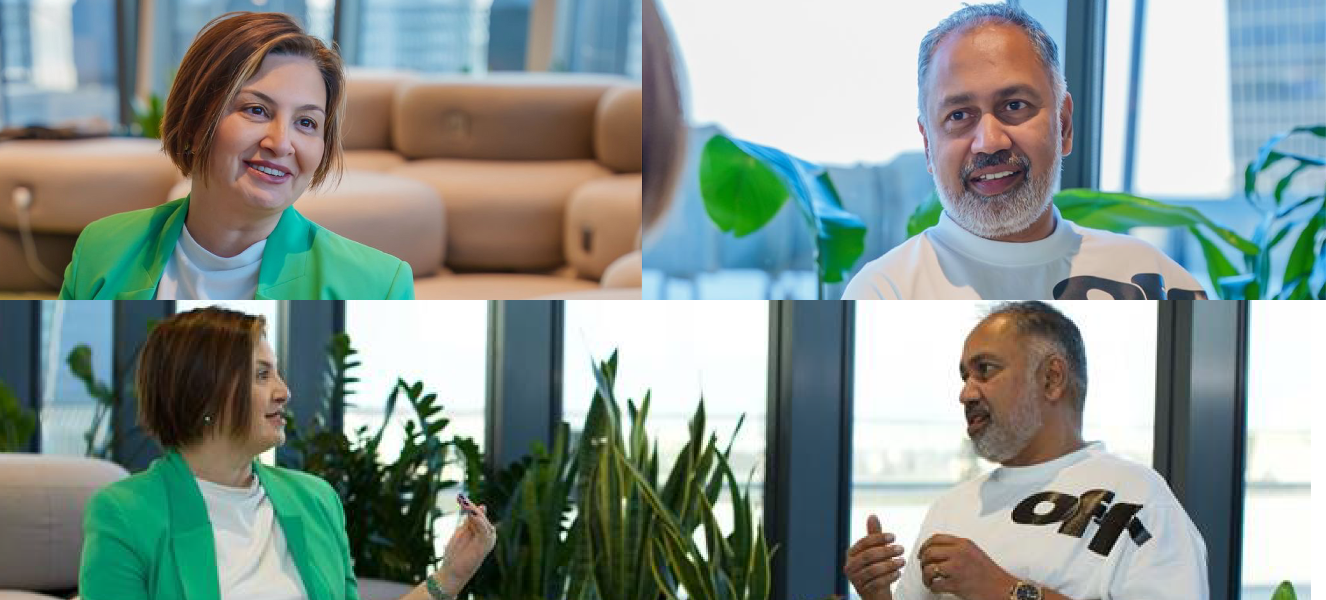Blog > Technology
AI’s next frontier: How G42 is powering the intelligence economy
Technology
25 April 2025

AI’s next frontier: How G42 is powering the intelligence economy
In this series on artificial intelligence (AI) in marketing, I have talked to people across industries in the Middle East about how their companies are using AI in marketing. But what about looking beyond marketing? When discussing AI in the Middle East, it's impossible to have a complete conversation without considering G42's perspective. As a marketing leader within the same group, I chose to sit down with Faheem Ahamed, the Group Chief Marketing and Communications Officer at G42, a global frontrunner in developing visionary artificial intelligence to shape a better tomorrow.
AI as the next essential utility
The company’s website claims that it is “unleashing the full potential for AI to invent a better everyday”. This is certainly ambitious, but how are they delivering on that? Faheem is clear about the company’s ambition.
At G42, we see AI not just as an enabler but as the next essential utility, as fundamental as electricity. But the real challenge isn’t building more powerful systems; it’s making sure they serve everyone. That’s why we’re building the Intelligence Grid: a distributed infrastructure that integrates cloud, compute, and connectivity to embed AI into the fabric of everyday life. It’s designed to deliver knowledge, assistance, and capabilities on demand—reliably, securely, and at scale.
He adds that he believes that AI access and use must be equitable. In other words, it must become part of everyday life in a way that empowers individuals, industries, and nations.
“The goal isn’t just technological reach, but universal access. Whether it’s decoding complex diseases, optimising food security, or rethinking how economies function, AI must leave no one behind. At G42, we’re building the foundation for this future—one where intelligence is pervasive, adaptive, and deeply human in its impact.”
AI and the UAE’s Digital Transformation
One of my previous interviewees, Alya Al Fardan at First Abu Dhabi Bank, talked about digital transformation in the UAE, and the importance of the government’s vision. Faheem agrees that this is crucial.
“The UAE isn’t just adopting AI, but it is architecting the future of AI-native economies. However, the end goal must be clear: an AI-native society where every system, every service, and every sector is built with intelligence at its core.”
He suggests that this will require policies that are driven by AI, and a workforce that is fully fluent in the use of this technology. This will allow AI to become a real asset to the UAE. G42 sees itself as an essential element in this process.
At G42, we are putting the architecture in place to turn this vision into reality. The Intelligence Grid serves as the backbone of an AI-native economy, enabling intelligence to flow through every sector and service in ways that are adaptive, generative, and deeply integrated
Marketing in an AI-driven world
I asked Faheem about the use of AI in marketing in the UAE. He suggested this was the wrong question.
“Marketing in its current form is losing relevance. Over half of enterprises in the UAE already use AI to optimise their operations, and we’re looking far beyond that. At G42, we’re beginning the transition from conventional marketing functions to marketing intelligence. This moves past automation to fundamentally change how brands understand and engage with their audiences.”
He adds that this poses some real questions about customer interactions.
“We’re no longer just speaking to consumers. Soon, we’ll be speaking to and through AI agents that shape brand–consumer relationships in real time. How will we maintain trust and authenticity in a world where AI mediates these interactions? How do we design experiences that are intelligent, yet deeply human? We are already working on these questions.”
One of the features of AI that is most likely to be useful to marketers is personalisation. In a country like the UAE, with a population containing over 200 nationalities, this has huge potential, especially in real-time dynamic interactions. However, it also comes with challenges.
“For personalisation to work, brands have to take responsibility for the quality of their AI. Bad AI leads to bad personalisation—reinforcing stereotypes, misinterpreting intent, and alienating consumers. This isn’t really a technical challenge; it’s an ethical one.”
The AI talent gap and future workforce
Generative AI is widely expected to change marketing and particularly content creation. Once again, however, Faheem is ahead.
“Let’s flip the question: What if everything we know about marketing today is redundant in six months? We could see AI agents replacing search and social media as the primary discovery tool. AI could generate, test and optimise ads without any human input. It could tailor ads to individuals instantly. These things are already happening. At G42, we are designing AI architectures that move beyond supporting marketing. They are becoming marketing itself.
This will clearly require new skills, and there is a reasonable chance of seeing skills shortages. Faheem suggests that a new way of working requires new ways of thinking too.
“If the UAE is to be the first AI-native nation, then our people—our thinkers, creators, and decision-makers—must be AI-native too. The most valuable marketers of tomorrow will understand how to shape, train, and co-create with intelligent systems. They will need to understand how AI thinks, and then use it to create possibilities.”
He adds that it is unlikely that the UAE currently has enough people with these skills, including among marketers. However, he believes that the country—and the companies working there—will be able to develop those skills. He adds that G42 is a good example of this, and is already investing heavily in people.
A future-focused mindset
Apart from investing in people, what should brands do to ensure that they successfully integrate AI into their marketing? Faheem is clear that it requires a change in mindset, as well as different actions.
“The biggest mistake is treating AI as a tool rather than a transformation. The right approach is not incremental, but it is structural.
I would suggest that companies start by rethinking their data strategy, because AI is only as good as the data that it learns from. The next step is to build AI-native teams, with data scientists, machine learning engineers and ethicists at their heart. Finally, you have to experiment with AI to get it right. It’s not plug-and-play.”
Trust now matters more than ever before, but Faheem believes that changing thinking is the key to success.
“I can’t stress this enough: this isn’t about using AI for marketing. It’s about marketing in an AI-defined world. Companies that grasp this will lead. Those that hesitate will struggle to stay relevant.”
Nurcan Bicakci Arcan
MMA MENA Board Member & Chair of AI & Data Committee

MMA MENA
Editor
Other Articles
ArabyAds Launches Household Graph, an Advanced Solution for Next-Generation Audience Targeting Across CTV and Mobile
11 November 2024
Connecting Data, Location, and Commerce: Logi5 Unveils Its Advanced Advertising Platform
19 November 2024
GAIO & GeoAI: The Future of Data-Driven Marketing
03 March 2025
All Articles


Workflow-First AI: From Point Tools to End-to-End Workflows
15 August 2025





